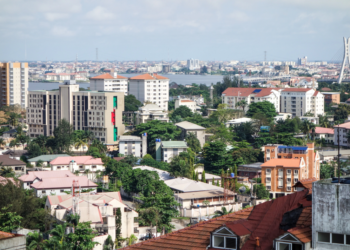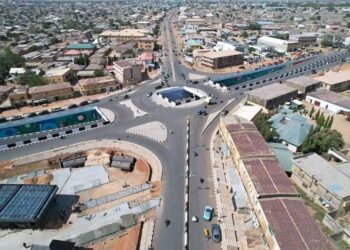State governors in Nigeria shared the sum of N2.53 trillion gross allocation in 2019 (January – November). This was disclosed in the data obtained by Nairametrics from the National Bureau of Statistics (NBS) for the period ending November 2019.
In what appeared to be a challenging year for Nigeria, from a fiscal standpoint, analysis of the data showed that revenue crisis faced in 2019 took its toll on the federal allocation, as the allocated fund to states for the period under review dropped by N49.56 billion.
Specifically, federal allocation disbursed to states dropped to N2.53 trillion in 2019, from N2.58 trillion allocated within the period in 2018.
Breakdown of federal allocation to states
In 2019, the top 10 states that received the largest portion of the federal allocation were Delta, Akwa Ibom, Rivers, Lagos, Bayelsa, Kano, Kaduna, Edo, Katsina and Imo. Meanwhile, major oil-producing states suffered decline in the allocation.
[READ ALSO: Debt profile: Bankruptcy looms, Obasanjo warns FG (Opens in a new browser tab)]
Delta State remains the biggest recipient of federal allocation with a total sum of N214.4 billion. But the allocation to the state dropped by N1.05 billion when compared to that (N215.4 billion) received in 2018.
- Akwa Ibom maintains the second spot with a total sum of N169.79 billion gross allocation within the period. Also, allocation to Akwa Ibom dropped by N27.8 billion when compared to 2018.
- Rivers ranks third on the list with a gross allocation of N154.5 billion, a N15.3 billion decline from the N169.8 billion received in 2018.
- Lagos State witnessed a rise in federal allocation received, from N143.9 billion in 2018 to N152.4 billion.
- Meanwhile, another oil-producing state, Bayelsa, recorded a drop in gross allocation to N143.8 billion in 2019 against 157.4 billion in the corresponding period of 2018.
- Other states among the top 10 recipients are Kano (N82.3 billion), Kaduna (N66.9 billion), Edo (N66.5 billion), Katsina (62.5 billion) and Imo (62.1 billion).

[READ MORE: FG, States, LGs’ to share N635.82 for November)
Bail-Out, external Debt, other deductions may bleed states’ fund in 2020
It is instructive to note that gross allocation to all states in Nigeria is subjected to a number of deductions. Analysis of the monthly allocation reports showed that deductions from monthly allocation to states include external debt payment, bail-out fund, National water rehabilitation projects, National Agricultural Technology Programme, payment for fertilizer, state water supply project, State Agricultural Project and National Fadama Project.
Recent report from Nairametrics showed that the states received N614 billion in form of budget support facility (bail-out fund) from the Federal Government to pay salary arrears in 2016. Hence, on a month-on-month basis, the deductions are removed from the states’ allocation, which leaves some states with very bleak outlooks in 2020.
- Already, the Federal Government and the states have been engaged in a tussle as the FG mounts pressure on governors in a move to quickly recover the bail-out funds.
- In 2019, the total deductions made by the Central Bank of Nigeria from the federal allocation amounted to N250.2 billion.
- The breakdown shows that bailout funds and other deductions stood at N214.2 billion, while external debt deductions were put at N36.05 billion.
- Osun state led the pack with the sum of N16.76 billion deducted from the allocation to the state.
- Delta followed with N13.65 billion deductions.
- Bayelsa’s deductions stood at N13.07 billion.
- Ogun State recorded N12.99 billion deduction from its federal allocation
- Akwa-Ibom and Imo States recorded N12.12 billion and N10.15 billion deductions from federal allocation respectively.

Outlook for 2020 as minimum wage, revenue concerns linger
- The Nigerian economy, which nose-dived into recession in 2016, continues to struggle as it failed to produce the growth recorded prior. Following this, several states face revenue challenges with backlogs of salary arrears to pay.
- Analysts expect revenue to improve in the year 2020 but insisted that states must intensify efforts to raise their revenue levels to avoid being totally cash trapped.
- On the other hand, most states have yet to implement the new N30,000 minimum wage. The organized labour unions are expected to up their tussle with several state governors who are yet to implement the new minimum wage.
- Several states may further face financial constraint in 2020, as their Internally Generated Revenue and monthly allocation cannot meet their huge financial obligations.
- Hence, while debt profile is already worrisome, these states may resolve to accumulate more debts in an attempt to meet basic obligations.























your headline is quite misleading, a fiscal year like 2019 has 12 months (jan-dec) not 11 months(jan-nov).
Please try and be more accurate in write up.
this report is incomplete. you listed how much was received by 10 top and ten bottom states. how about the rest of the states like ondo?. your graph of total deductions is for the 36 states but without the graph for total allocation for all states the graph is useless.
for research purposes this article is deficient in the above regards.
The data from other states are available, please we need the figure for every single state for research purposes.
This report is lack some basic ingredients. The report should have captured all the States and full year (12 months) allocations to each state in a year
You really try, but your title says “states allocations”, and not all state are mentioned. Hence what is the reason why the other states received highest allocation?. This has to be outlined.